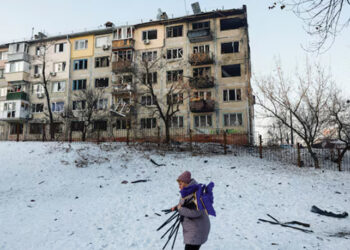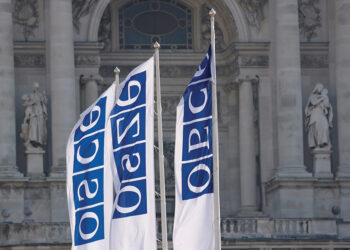In a musical landscape increasingly saturated with spectacle and sameness, the Tbilisi Piano Fest (June 17–28, 2025) offers a rare counterexample: a festival that curates instead of merely programs, that listens as much as it plays, and that — above all — believes in the piano as a thinking, breathing, emotionally volatile protagonist of the 21st century.
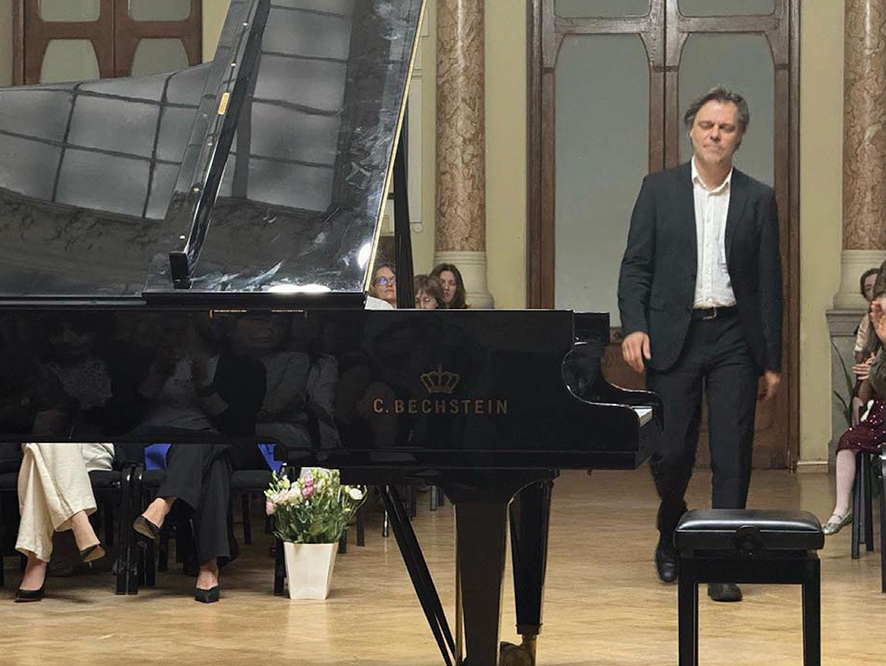
Under the artistic direction of Dudana Mazmanishvili, the festival has grown into one of the most intellectually vital and aesthetically coherent events in the region — and not just by Caucasian standards. Mazmanishvili, a pianist of strong convictions and wide musical horizon, demonstrates that curatorial taste is not just about picking big names, but about building a narrative — one that stretches across borders, styles, and generations. Rather than rely solely on celebrity status, this year’s edition of Tbilisi Piano Fest offered a collection of uncompromising musical personalities, each of whom brought their own grammar of touch, silence, and timing.
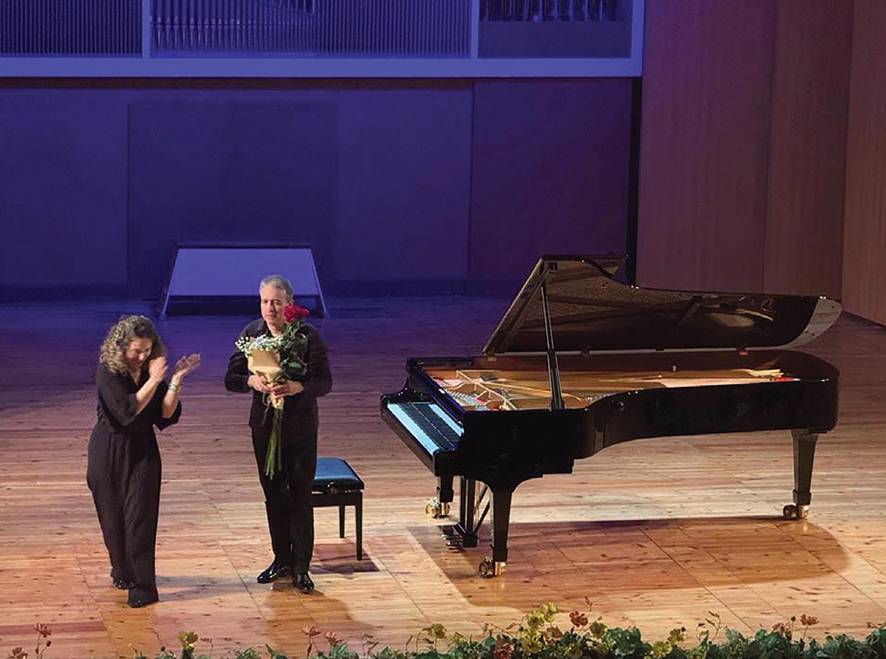
Andrius Žlabys, the Lithuanian-American pianist and former protégé of Alfred Brendel, gave one of the most elegant and introspective recitals of the series. Each work unfolded as an extension of breath and structure, as if drawing from a common source of meditative clarity.
The program began with Bach’s Partita No. 6 in E minor, rendered in a style that emphasized its rhetorical shape and emotional undercurrents. Žlabys shaped the ornamentation not as surface detail, but as part of the phrasing logic, connecting gesture to harmonic motion. Weinberg’s Children’s Notebook and Kancheli’s Simple Music for Piano introduced a gentler, more introspective dimension. In these smaller forms, Žlabys revealed an attention to nuance and stillness, with silences that framed each miniature like an epigram. With Franck’s Prélude, Choral et Fugue, the recital moved toward a deeper harmonic density. Franck’s architecture, cyclical and devotional, emerged with solemn pacing and luminous counterpoint.
The program concluded with Žlabys’s own composition, Echoes of Light — a distilled, harmonically ambiguous landscape of resonances. Through it, the pianist extended the evening’s introspection into a tonal space shaped by memory, reflection, and acoustic decay.
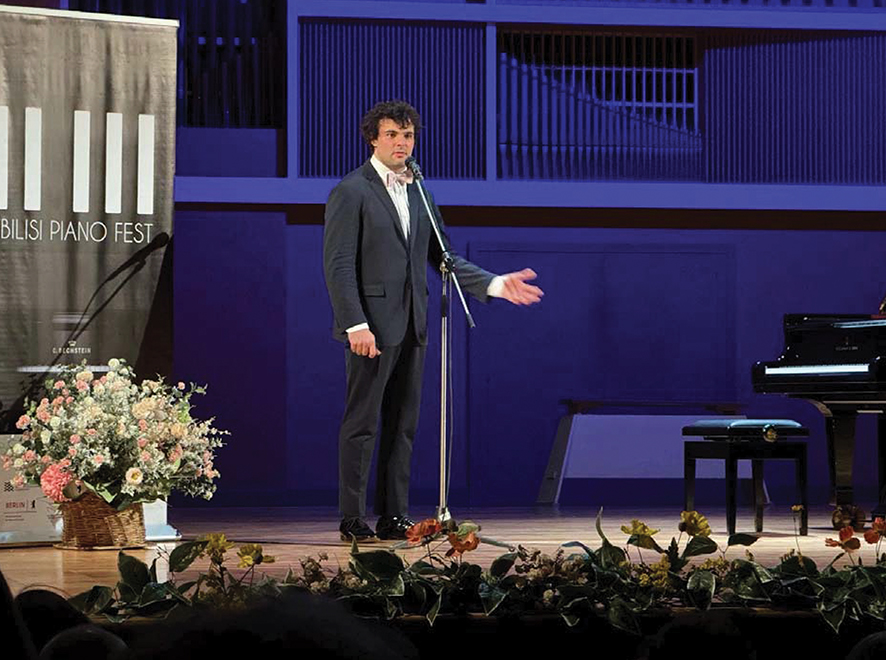
Aleksei Volodin’s recital was both dazzling and architecturally rigorous — a traversal of Romantic narrative forms, anchored in the duality of restlessness and return. The program’s fulcrum was Schubert’s “Wanderer” Fantasie, a work that Volodin approached not as a showpiece but as a philosophical arc: the fantasy as existential mapping. His structural command and rhythmic logic lent weight to even the most bravura passages, turning technical virtuosity into conceptual rhetoric.
He began with Grieg’s Lyric Pieces, framing them not as sentimental trifles but as fragments of inward experience. The interplay between “To Spring” and “Elegy,” for instance, functioned like polar emotional poles — light refracted through distance and loss. Liszt’s “Funérailles” was unsentimental, almost stoic in its grandeur. Unlike many pianists who succumb to its emotional excess, Volodin kept the funeral march taut and the rhetoric lean. His Beethoven “Les Adieux” Sonata was less about theatrical farewell than about the tonal politics of departure and return — each movement internalized as argument. The encore — Schubert’s “Das Wandern” — tied it all together: the wanderer as metaphor not just for Romantic longing but for the pianist’s own aesthetic route through the evening.
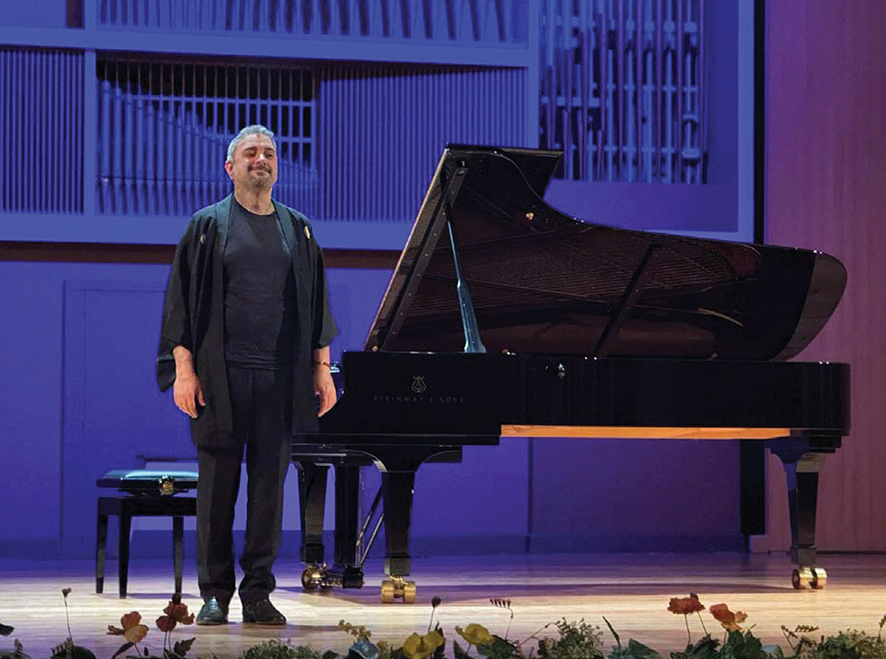
The young Spanish pianist Martín García García brought an evening of Romantic maximalism, filtered through a unique Iberian temperament. His Chopin Polonaise-Fantaisie was massive yet personal — the opening chromaticism less an invitation than a question. García García refuses to flatter the piano: he exposes it.
A revelation was Chopin’s early Sonata No. 1, rarely heard and rarely played with such fierce linear clarity. It was not a “young” work in his hands — it became prophetic. From here, the recital took an Iberian detour, with Mompou’s Variations on a Theme by Chopin, whose ascetic dissonances and modal dissolutions García García executed with minimalist tact. But the summit was Albéniz’s “La Vega” and “Iberia” Book III — not as picturesque national color, but as complex textures of modernism and memory. “Lavapiés” in particular, with its polyrhythmic combustion and jagged inner voices, revealed García García’s orchestral imagination: pedal as palette, not effect. The concert’s architecture was deliberate: Romanticism as both cradle and crucible of invention.
Konstantin Lifschitz, always the philosopher-pianist, brought an austere and intellectually formidable program that explored the dialectics between structure and fracture. His Bach (BWV 989 & 944) was precise, yes, but more importantly, discursive. Each variation in the Aria Variata functioned as commentary on the previous one — a form of hermeneutic play.
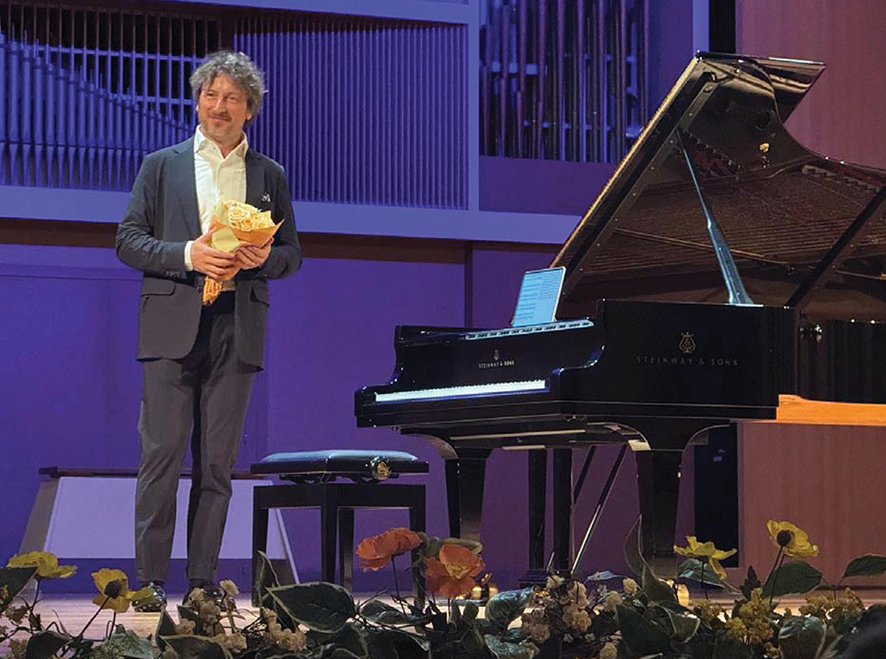
But the concert turned in a darker direction with Shostakovich’s Sonata No. 2 — a work that shivers with disintegration. Lifschitz did not play the sonata as Soviet gesture, but as post-tonal lament: the final movement’s hollow chords echoed like failed attempts at closure. The final ascent — Chopin’s 24 Preludes, Op. 28 — was neither an anthology nor an emotional diary. Lifschitz structured them as a cycle of contradictions: brevity against density, charm against violence. Prelude No. 20 (C minor) bled directly into No. 21 (B-flat major) like a dissonant resurrection. His pacing was daring: silences expanded, phrases stretched, registers carved like architectural masses. This was not Chopin the poet — but Chopin the builder, haunted by collapse.
Italian pianist Francesco Libetta closed the main concert series with an almost anachronistic recital: technically stunning, unapologetically beautiful, and emotionally radical.
The opening Weber “Invitation to the Dance” set the tone — stylized, urbane, but under Libetta’s fingers, ghosted by melancholy. His Schumann Études Symphoniques were nothing short of revelatory. Libetta reimagined the variations as psychological stations, each one deconstructing a facet of Schumann’s fragmented identity. There was tenderness, yes, but also an undercurrent of agitation — the composer’s elusive center mirrored in the pianist’s unstable rhetoric.
Then came Chopin — not as salon fare, but as metaphysical study. His choice of Études (from Op. 25) leaned toward inner turmoil rather than fireworks. The sequence of Ballade, and Scherzo that followed functioned as thematic variations on the idea of circular time. There was an uncanny calm in Scherzo No. 3, like someone playing through memory. It was no longer about pianist versus instrument — but about a strange fusion, a kind of pianistic Gesamtkunstwerk.
Across the last five nights, Tbilisi Piano Fest 2025 offered a sequence of pianistic perspectives marked by intellectual coherence and tonal imagination. The artistic direction of Dudana Mazmanishvili ensured that each program contributed to a broader narrative — not as isolated recitals, but as episodes in a living dialogue about form, silence, virtuosity, and harmonic meaning.
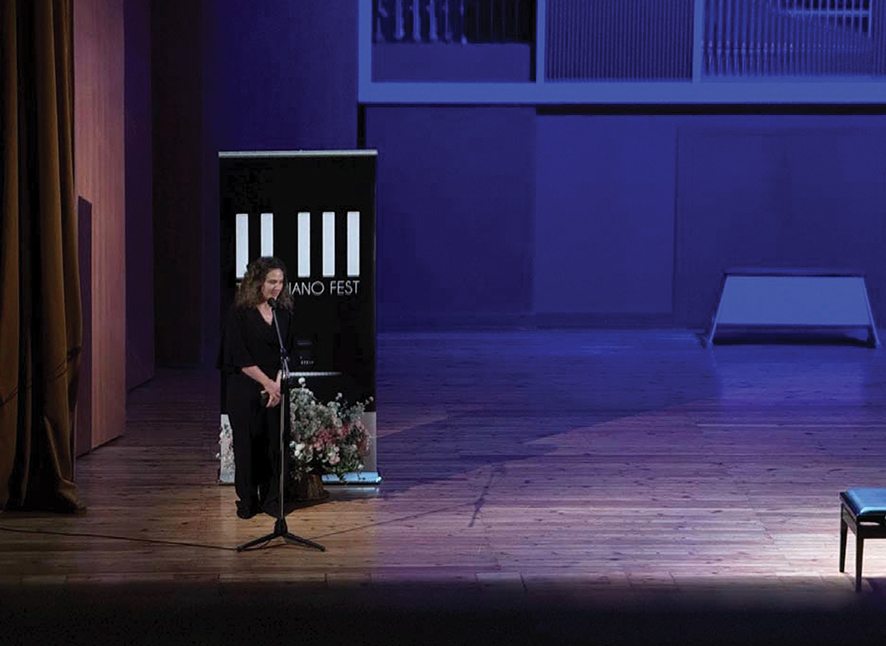
The festival is not over yet. Still to come is the long-awaited solo concert of Dudana Mazmanishvili herself, whose presence as performer will offer a deeper, more personal insight into the very aesthetic she so carefully fosters as curator. That this performance is placed toward the end of the festival is no accident: it suggests an epilogue, a coda where ideas converge into personal expression. The final open-air concert on June 28 is a joyful, democratic gesture in the heart of Tbilisi. Featuring celebrated Georgian pianists David Aladashvili, Valerian Shiukashvili, and the Tbilisi Youth Orchestra the event will bring the festival into the public square — quite literally. It’s a statement that classical music is not just for the initiated, but for children, families, and passersby who might hear a piano and pause.
Review by Ivan Nechaev


